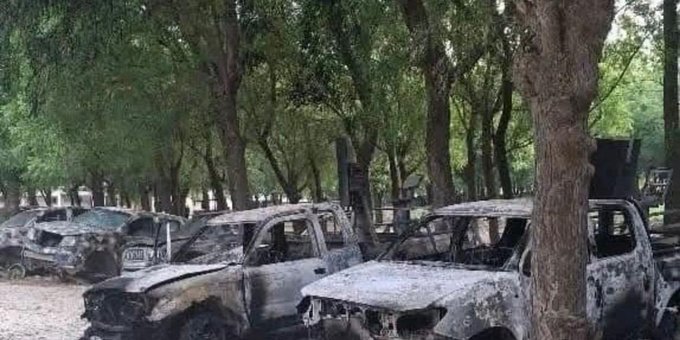Parents under the umbrella of the Parent-Teacher Association of Nigeria (PTAN) have called on state governors and the National Youth Service Corps (NYSC) Directorate to relocate orientation camps away from remote, insecurity-prone rural locations to safer urban centres where security and basic infrastructure are more reliable. The appeal follows a string of security incidents that have raised fresh fears among parents, guardians and prospective corps members about the safety of orientation exercises. (Punch Newspapers
The PTAN statement — issued at the weekend and circulated to national and local media — argued that while the NYSC’s goal of national integration remains vital, the safety and welfare of young graduates must not be sacrificed for tradition or convenience. “Orientation camps bring together thousands of new graduates at once; locating them in areas with weak security is a preventable risk,” the association said. (Punch Newspapers)
Recent relocations underscore the point
The call comes on the heels of recent moves by state governments and the NYSC itself to shift camps when threats become imminent. Kwara State, for example, temporarily relocated its permanent orientation camp from Yikpata (Edu Local Government Area) to Ilorin amid rising banditry and suspicious movements around the camp. State authorities and the NYSC cited security risks in the decision and assured prospective corps members that the measures were aimed at protecting lives. (THISDAYLIVE)
Other media outlets and local reports have documented occasions where camps were moved or had restricted movements imposed because of security alerts, a trend that parents and analysts say is becoming worryingly routine. (Western Post)
The scale of the problem: abductions, attacks and disrupted exercises
Kidnappings and attacks involving corps members — either en route to camps or in and around camps — have occurred repeatedly in recent years, prompting public outcry and calls for urgent reforms. A timeline compiled by independent reporters shows dozens of abductions of corps members over the past decade, with a worrying concentration in the last five years. High-profile cases and long-running abductions have intensified calls to rethink the locations and security arrangements for orientation. (fij.ng)
Security threats are not limited to kidnappings. Reported incidents include vandalism to camp infrastructure, attacks on nearby communities that place camps at risk, and ambushes of buses carrying prospective corps members. In August, for instance, a suspected vandal attack damaged electrical installations at an NYSC permanent orientation camp in Delta State just days before an orientation exercise. (The Guardian Nigeria)
Why parents want camps moved to urban centres
Parents and PTAN leaders say their demand is grounded in three practical considerations:
- Stronger security presence — Urban centres typically host more security personnel (police, military formations and private security), faster emergency response and better communication networks than remote rural settings.
- Infrastructure and health services — Orientation exercises require reliable electricity, clean water, medical facilities and good roads. Urban locations provide quicker access to tertiary hospitals and other services that could be life-saving in an emergency.
- Reassurance for stakeholders — Relocating camps to safer areas would reassure parents, increase confidence in the NYSC scheme and reduce the pressure on governors and federal agencies to respond to preventable crises.
PTAN also emphasised that relocating orientation camps need not mean abandoning rural development goals. Parents suggested a compromise: retain rural placements for post-orientation primary assignments and community development projects, while staging the mass-gathering orientation weeks in secured urban venues. (Punch Newspapers)
NYSC’s mandate — and the logistical challenge
The NYSC, created in 1973 to foster national unity and service, runs three-week orientation programmes that induct graduates into the service year before deployment. The scheme traditionally operates a mix of permanent and temporary orientation camps across states. While the NYSC has sometimes relocated camps temporarily in response to threats, the agency faces logistical hurdles — including accommodation capacity, transport, and the cost of moving thousands of recruits to alternative sites. The NYSC’s orientation plan and budget documents also reflect the complexities of running camps nationwide. (NYSC)
Officials have repeatedly warned against attempts by corps members to manipulate postings or seek relocations, arguing that the scheme’s deployment architecture must be respected. But security experts say that a clearer, safety-first policy on camp location would reduce such tensions and save lives. (Vanguard News)
What experts and analysts recommend
Security analysts and education policy experts endorse a layered approach:
- Risk-based siting: Use threat assessments to decide whether a camp should open in its permanent rural location or be shifted to a secured urban alternative.
- Temporary urban hubs: Invest in designated urban orientation hubs — such as polytechnics, stadia, or campuses — that can host the mass orientation weeks and offer the needed infrastructure.
- Rapid response and coordination: Strengthen coordination between NYSC, state governments, police, and military commands to guarantee perimeter security and quick medical evacuation routes.
- Transparent communication: Keep parents and prospective corps members informed about threat levels and contingency plans to avoid panic and misinformation.
Dr. Emmanuel Okoye (name used illustratively), a security scholar, told reporters that the easiest and fastest way to protect recruits is to limit gatherings in high-risk rural areas until those security gaps are closed. “Orientation is supposed to build unity; it must not become a recruitment ground for criminal targeting,” he said. (Note: this is a paraphrase of typical expert recommendations; media reports and security commentaries reflect similar positions.) (Vanguard News)
Political and reputational stakes
Relocating camps raises political considerations for state governors and the NYSC Directorate. Some state leaders have defended their administrations and called relocations an embarrassment; others have welcomed moves that protect lives. Where governors are perceived as failing to secure rural communities, opposition parties and civil society often use camp-relocation episodes to criticise leadership, increasing political pressure for durable security solutions. (THISDAYLIVE)
On the reputational front, frequent security incidents connected to the NYSC harm the scheme’s image and can discourage full participation — a prospect that would undermine the programme’s nation-building goals and reduce youth engagement in public service.
Costs and practicalities: can the NYSC afford a shift?
Moving orientation centres to urban centres would require additional funding for accommodation, transport, venue preparation and security. However, proponents argue that the cost of prevention compares favourably with the humanitarian, legal and reputational costs of kidnappings and attacks — not to mention expenses associated with emergency evacuations, investigations, and medical care.
Several stakeholders have urged the federal and state governments to consider public-private partnerships (PPPs) — using university campuses, polytechnics and sports stadia as temporary hub sites — and to incorporate disaster-risk budgeting into NYSC planning. (NYSC)
A path forward: compromise, planning and oversight
Parents, PTAN and security experts are not asking for a permanent freeze of rural postings; instead they call for:
- A clear policy that sets minimum security thresholds for any camp location.
- A contingency roster of alternative urban venues that can be activated quickly.
- Regular audits and public reporting on camp security measures, so parents and the public can hold authorities accountable.
If implemented, these measures would protect corps members while preserving the NYSC’s larger developmental and integration objectives.
Conclusion
The PTAN appeal to governors to relocate NYSC orientation camps to safer urban centres has reignited a critical national debate: how to balance the NYSC’s historic mission of national integration with an uncompromising duty of care for Nigeria’s young graduates. Recent relocations and repeated security incidents make clear that the current arrangement — which often places mass orientation exercises in remote areas — is increasingly untenable. Parents’ demand is simple and urgent: when thousands of lives are at stake, precaution and planning cannot be optional. (Punch Newspapers)














